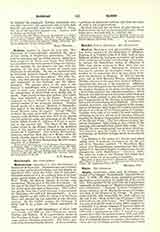

Haeften, BENEDICT VAN (HAEFTENUS), Benedictine writer, provost of the Monastery of Afflighem, Belgium; b. at Utrecht, 1588; d. July 31, 1648, at Spa, Belgium, whither he had gone to recover his health. After studying philosophy and theology at Louvain, he entered the Benedictine Abbey of Afflighem in 1609, took solemn vows on May 14, 1611, and was ordained priest in 1613. Hereupon he returned to Louvain to continue his theological studies, but was recalled to his monastery when he was about to receive the licentiate in theology. In 1616 he became prior, and in 1618 Matthias Hovius, Archbishop of Mechlin, who was at the same time Abbot of Afflighem, appointed him provost of his monastery. Afflighem at that time belonged to the Bursfeld Union, and under the prudent direction of the pious van Haeften was in a flourishing spiritual and temporal condition. Jacob Boonen, who had succeeded Hovius as archbishop and abbot in 1620, desired to join the monastery to the new Congregation of St. Vannes, in Lorraine, which had a stricter constitution than Bursfeld. After some prudent hesitation, van Haeften agreed to the change, and on October 18, 1627, began his novitiate under the direction of a monk of the Congregation of Lorraine. Together with eight of his monks, he made confession according to the new reform on October 25, 1628, and founded the Belgian Congregation of the Presentation of the Blessed Virgin. The new reform enjoined perpetual abstinence, daily rising at two o’clock in the morning, and manual labor joined with study. Unhappily the new congregation was of short duration. The intrusion upon the rights of the monks by the Archbishop of Mechlin brought about its dissolution in 1654.
Van Haeften is the author of a learned and pains-taking work of monastic researches on the life and rule of St. Benedict, entitled: “S. Benedictus illustratus, sive Disquisitionum monasticarum libri XII, quibus S. P. Benedicti Regula et religiosorum rituum antiquitates varie dilucidantur” (Antwerp, 1644). The other six works of van Haeften that found their way into print are of an ascetical character.
MICHAEL OTT

